第64章 Chapter XIII(3)
She looked at the pale distant sky, and the high bare places on the mountain-tops lying exposed to the sun. When she sat down she had dropped her books on to the earth at her feet, and now she looked down on them lying there, so square in the grass, a tall stem bending over and tickling the smooth brown cover of Gibbon, while the mottled blue Balzac lay naked in the sun. With a feeling that to open and read would certainly be a surprising experience, she turned the historian's page and read that--
His generals, in the early part of his reign, attempted the reduction of Aethiopia and Arabia Felix. They marched near a thousand miles to the south of the tropic; but the heat of the climate soon repelled the invaders and protected the unwarlike natives of those sequestered regions. . . . The northern countries of Europe scarcely deserved the expense and labour of conquest.
The forests and morasses of Germany were filled with a hardy race of barbarians, who despised life when it was separated from freedom.
Never had any words been so vivid and so beautiful--Arabia Felix--
Aethiopia. But those were not more noble than the others, hardy barbarians, forests, and morasses. They seemed to drive roads back to the very beginning of the world, on either side of which the populations of all times and countries stood in avenues, and by passing down them all knowledge would be hers, and the book of the world turned back to the very first page.
Such was her excitement at the possibilities of knowledge now opening before her that she ceased to read, and a breeze turning the page, the covers of Gibbon gently ruffled and closed together. She then rose again and walked on. Slowly her mind became less confused and sought the origins of her exaltation, which were twofold and could be limited by an effort to the persons of Mr. Hirst and Mr. Hewet.
Any clear analysis of them was impossible owing to the haze of wonder in which they were enveloped. She could not reason about them as about people whose feelings went by the same rule as her own did, and her mind dwelt on them with a kind of physical pleasure such as is caused by the contemplation of bright things hanging in the sun.
From them all life seemed to radiate; the very words of books were steeped in radiance. She then became haunted by a suspicion which she was so reluctant to face that she welcomed a trip and stumble over the grass because thus her attention was dispersed, but in a second it had collected itself again. Unconsciously she had been walking faster and faster, her body trying to outrun her mind; but she was now on the summit of a little hillock of earth which rose above the river and displayed the valley. She was no longer able to juggle with several ideas, but must deal with the most persistent, and a kind of melancholy replaced her excitement. She sank down on to the earth clasping her knees together, and looking blankly in front of her. For some time she observed a great yellow butterfly, which was opening and closing its wings very slowly on a little flat stone.
"What is it to be in love?" she demanded, after a long silence; each word as it came into being seemed to shove itself out into an unknown sea. Hypnotised by the wings of the butterfly, and awed by the discovery of a terrible possibility in life, she sat for some time longer. When the butterfly flew away, she rose, and with her two books beneath her arm returned home again, much as a soldier prepared for battle.